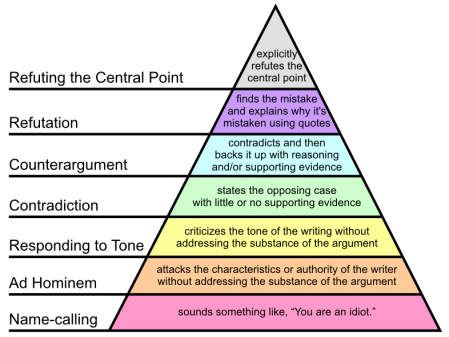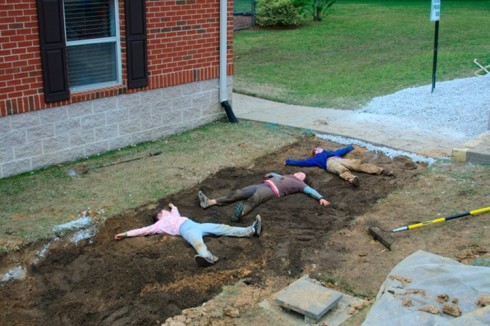
Talk about a long day! (“What an understatement,” she says.)

We moved about 45 tons of sand, gravel and compost today, filling in the moat we dug last week. We were lucky enough to have the help of a backhoe for the digging, but all the filling in today was done by hand, with shovels and wheelbarrows.
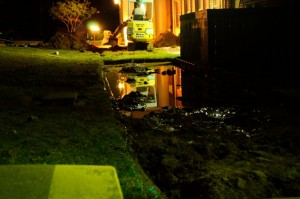
Despite rumors about it being a first line of defense against the Cordovan barbarian hordes, the moat was actually intended to become a rain garden, which was designed by the Rhodes College Hydrogeology class to intercept some of the runoff slope that funnels water directly down toward the school during the intense rainfall that we get with our spring and fall mid-latitude cyclones.
So we had to get rid of the heavy, dense, silty-loam soil that is really slow to let water seep through, and makes it hard to grow anything on the Memphis side of the Mississippi River. The fine grained silt was blown over from the Mississippi River floodplain about 20,000 years ago when the ice-age glaciers were melting and all their ground up rock flour was being washed down the Mississippi. This type of wind-blown sediment is called loess. I like the sound of the word because if you stretch out the “oe” properly it does something to the back of your throat that feels distinctly German; however, if you ask someone from the deep south to pronounce it, you’ll hear the name of Clark Kent’s girlfriend.
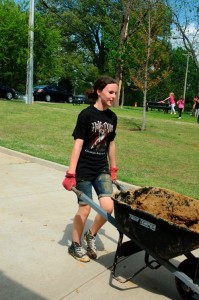
The backhoe dug two trenches, each about 2 m wide, 6 m long, and about 60 cm deep, and piled the soil up next to the holes. Moving this stuff is not trivial. My middle-school students gave it a try on Friday afternoon and though they made a small dent, there is an awful lot more to do (my students also helped figure out how long it would take to finish pumping out Friday morning’s collected rainwater from the trenches).
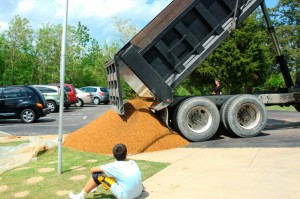
Then, on Saturday, with large piles of the old soil still sitting there, we replaced the impermeable loam with a fifty-fifty mix of sand and compost, underlain by five centimeters of pea-sized gravel on top of five centimeters of crushed limestone. This material was delivered by dump truck on Friday afternoon, while school was still in session. It was loud, exciting, and according to one member of the pre-school aged audience, “the best day ever!”

I have to agree. It was kind-of exciting. Although for me, the bright, brown pile of pea gravel evoked fond memories of pyramids of powdered curry, saffron and tummeric sitting on the spice-seller’s stall in a market in Morocco .
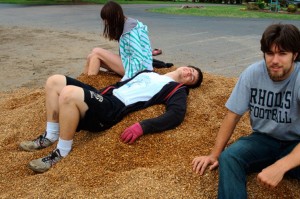
For others the pea gravel was a more tactile experience: snuggling into it, after a hard day’s work, appeared to be quite therapeutic.
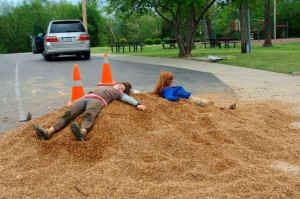
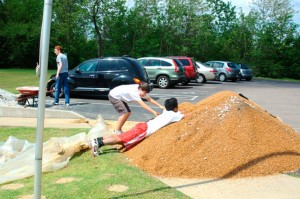
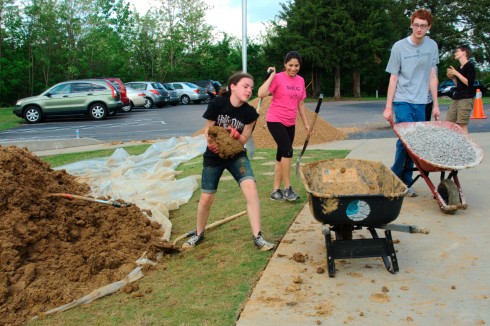
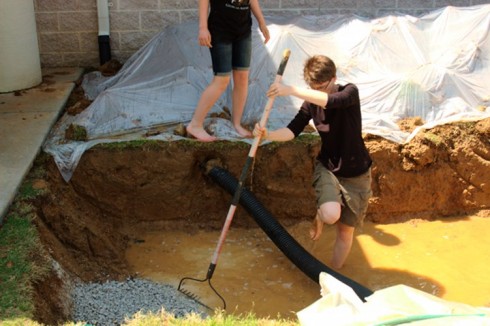
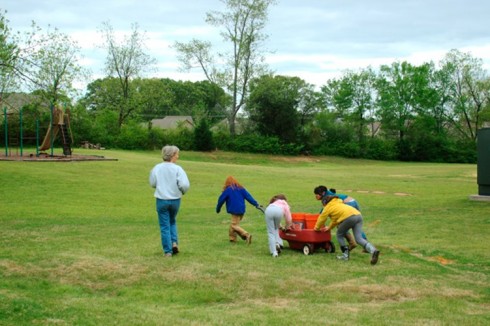
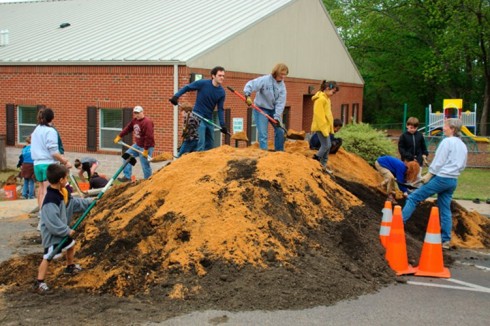
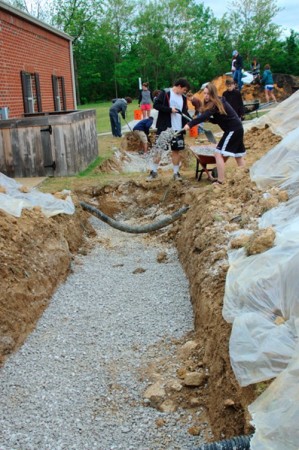
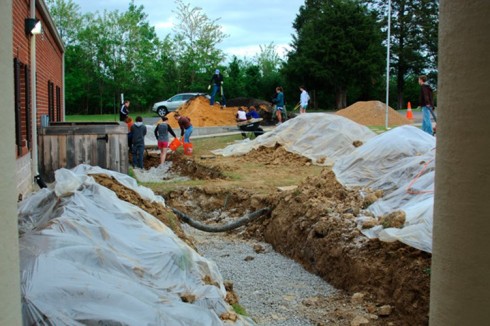
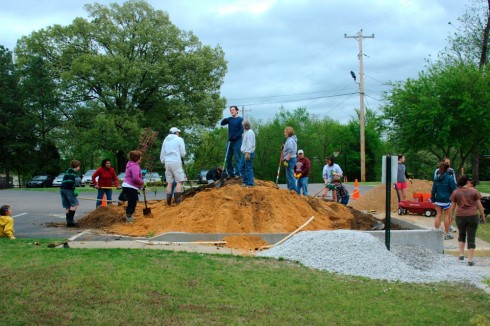
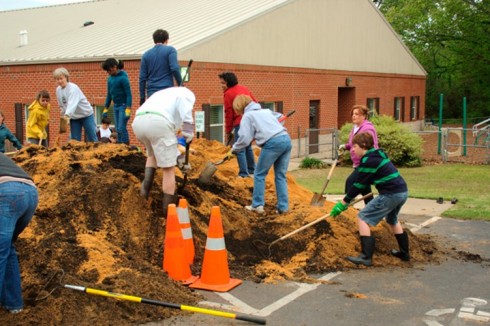
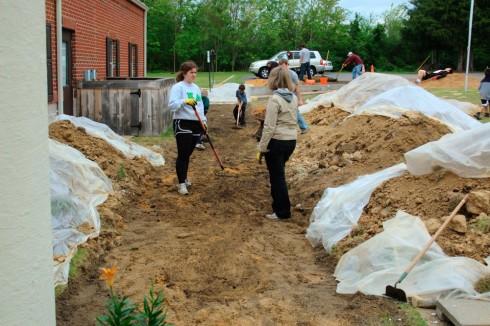
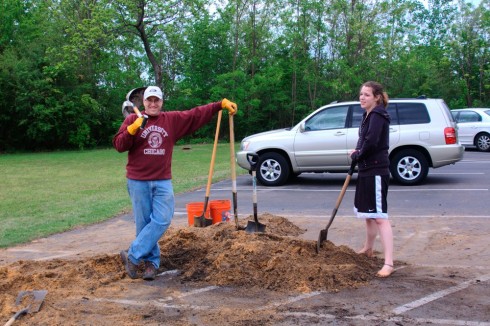
To be continued…


